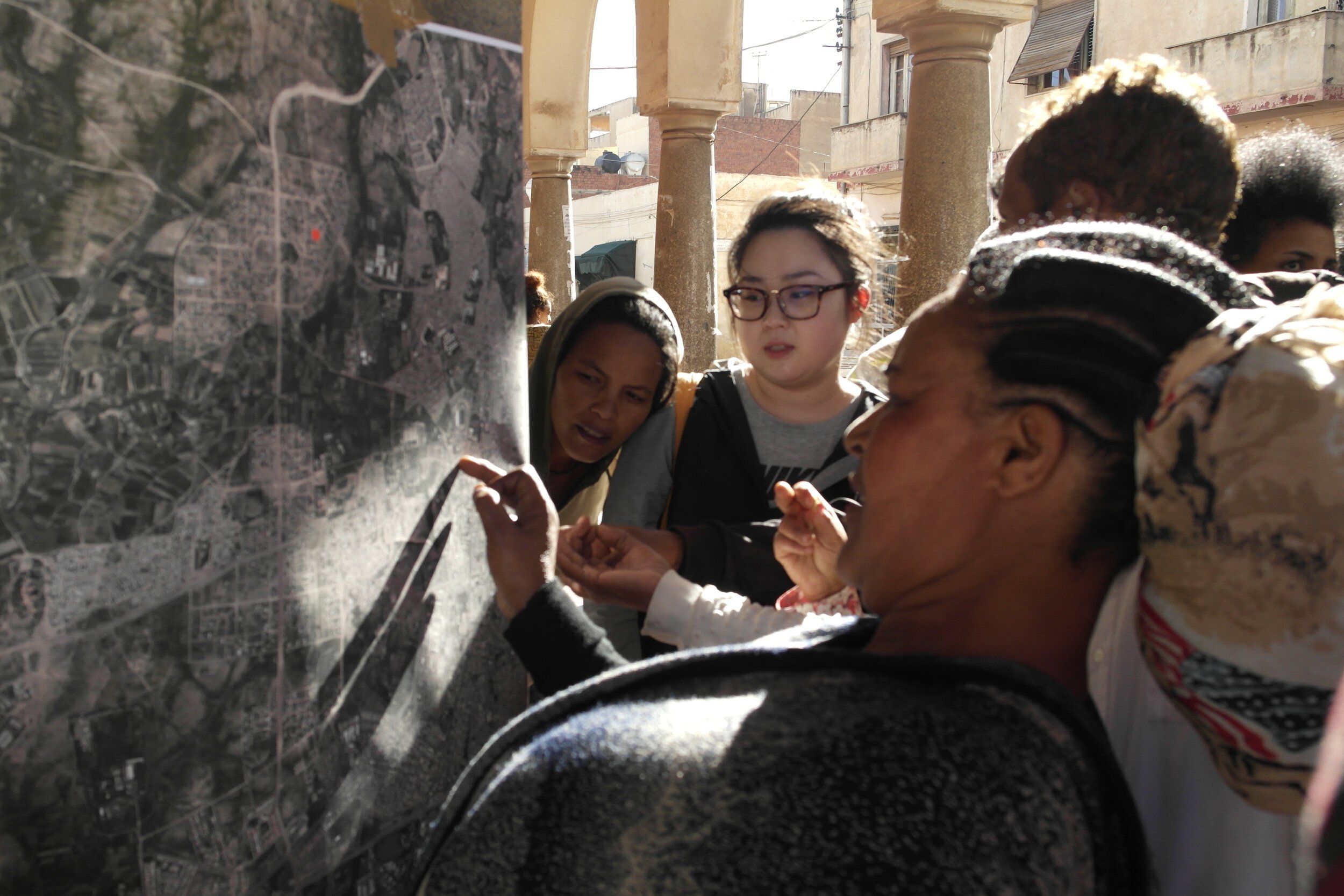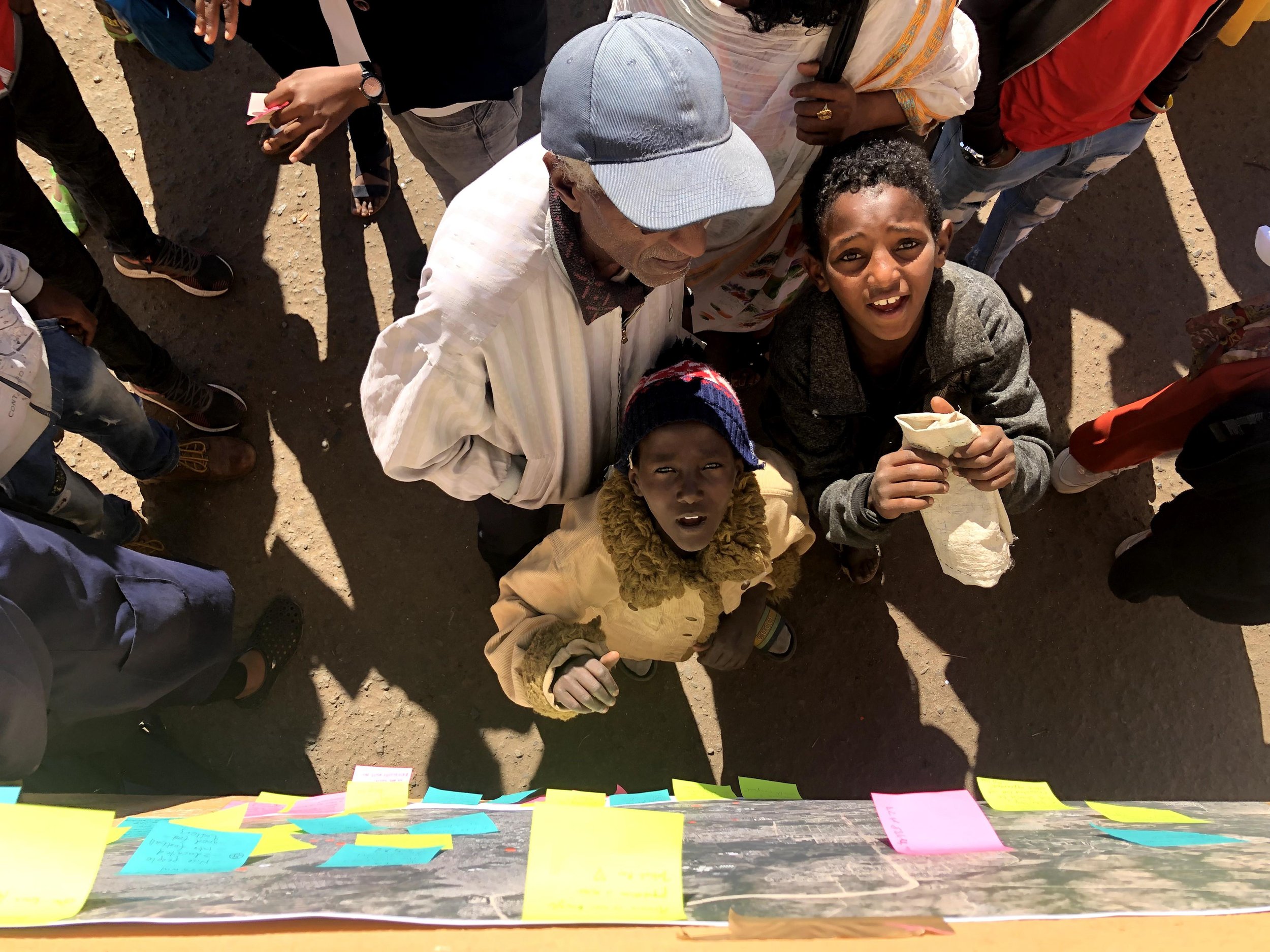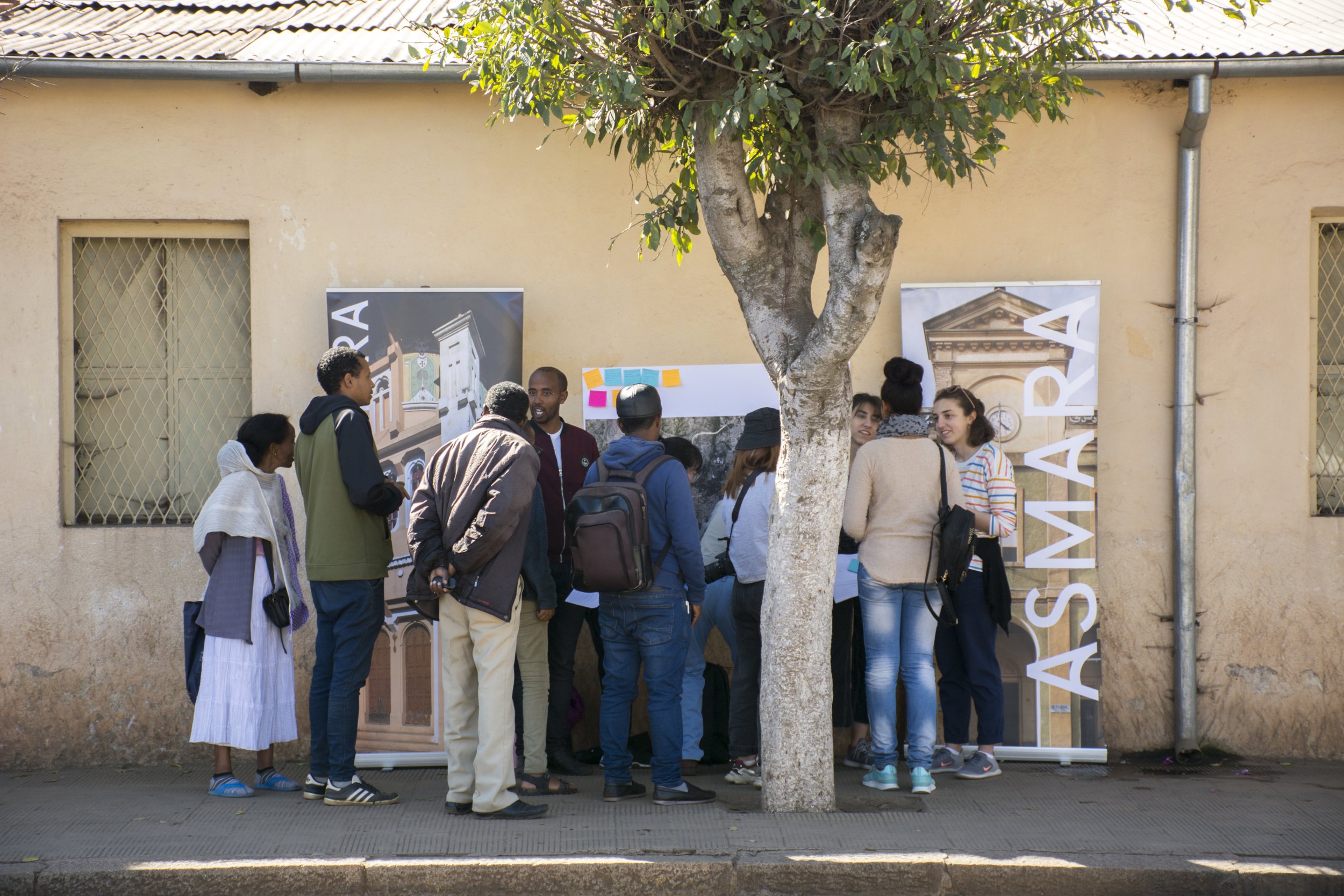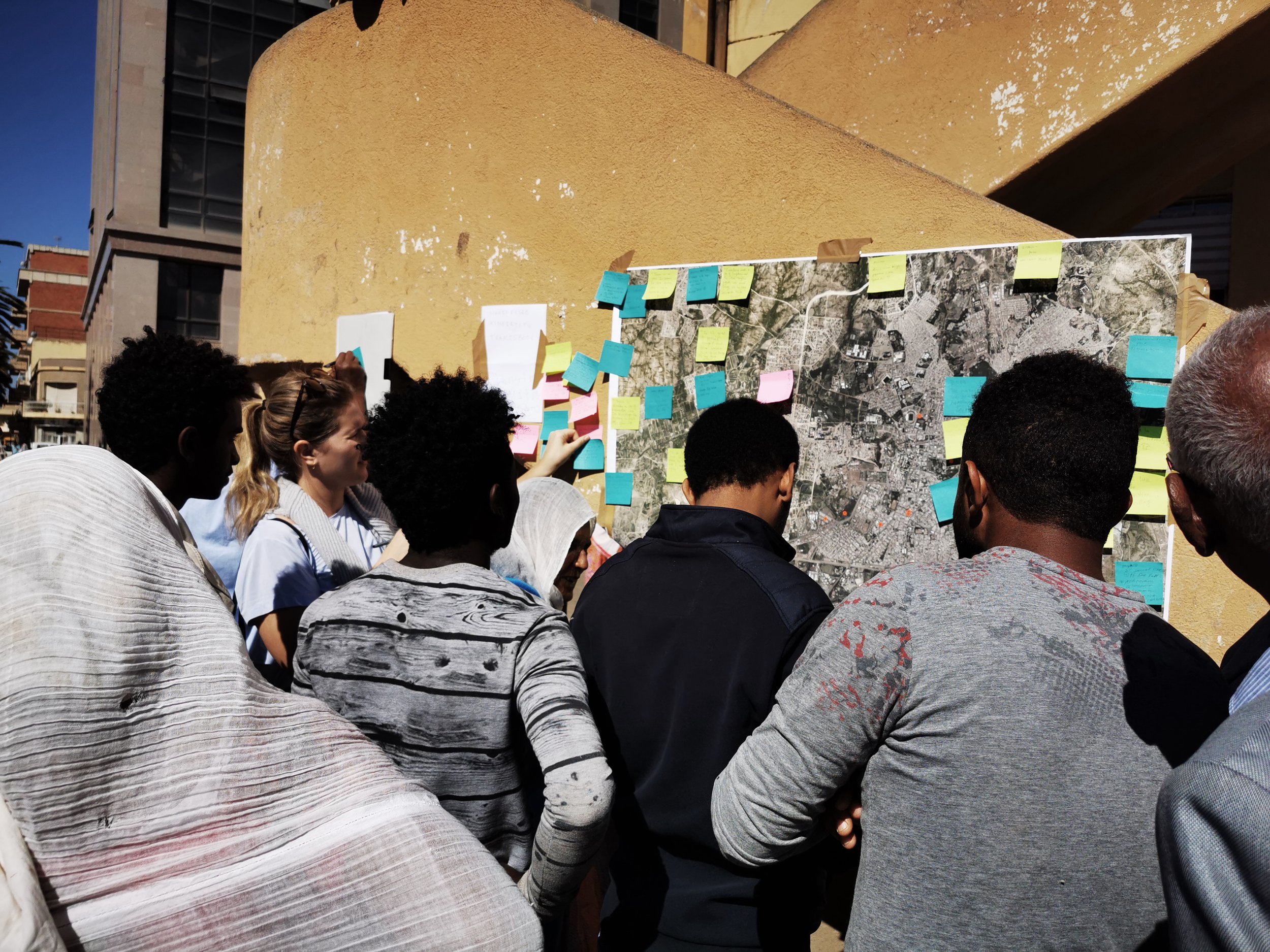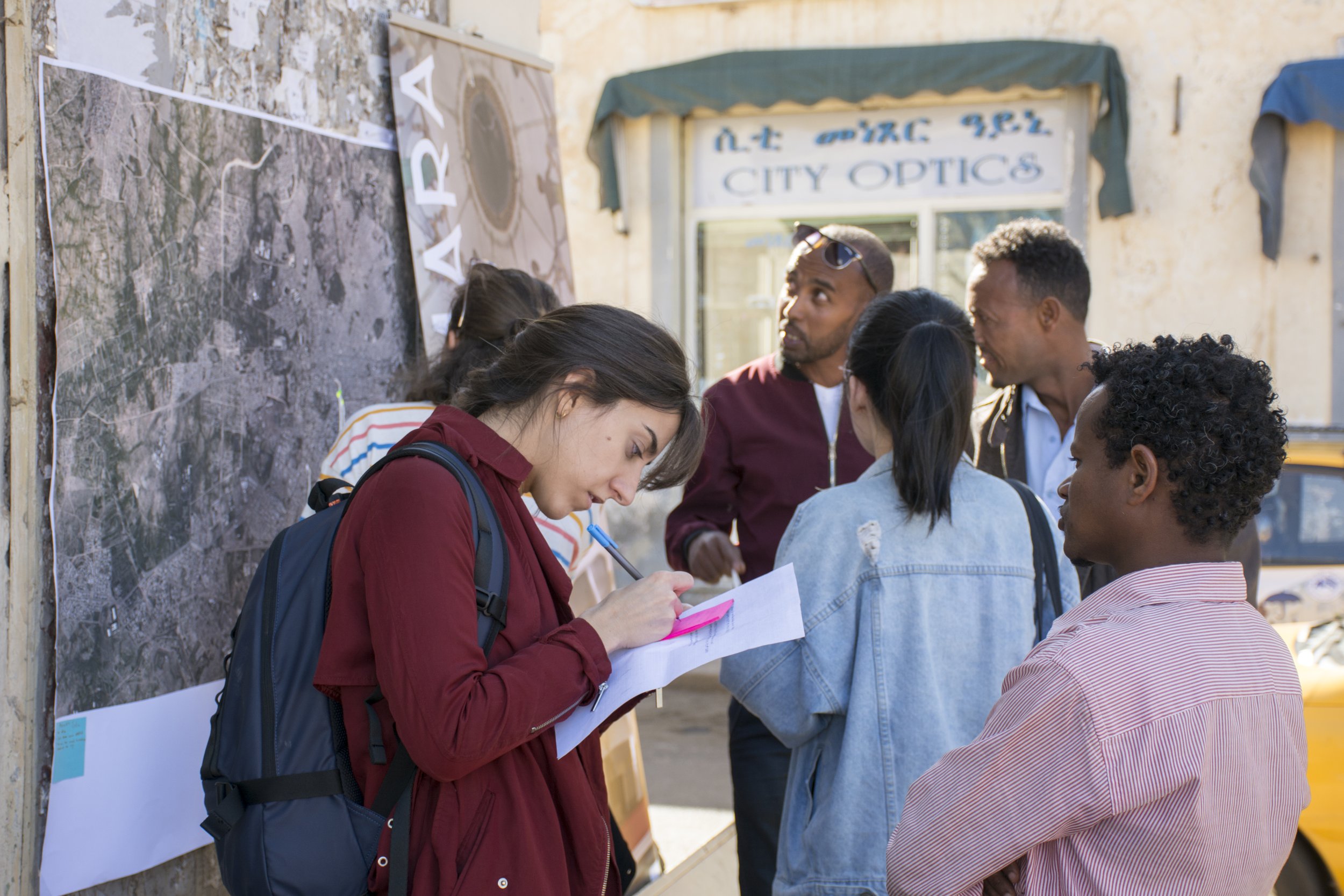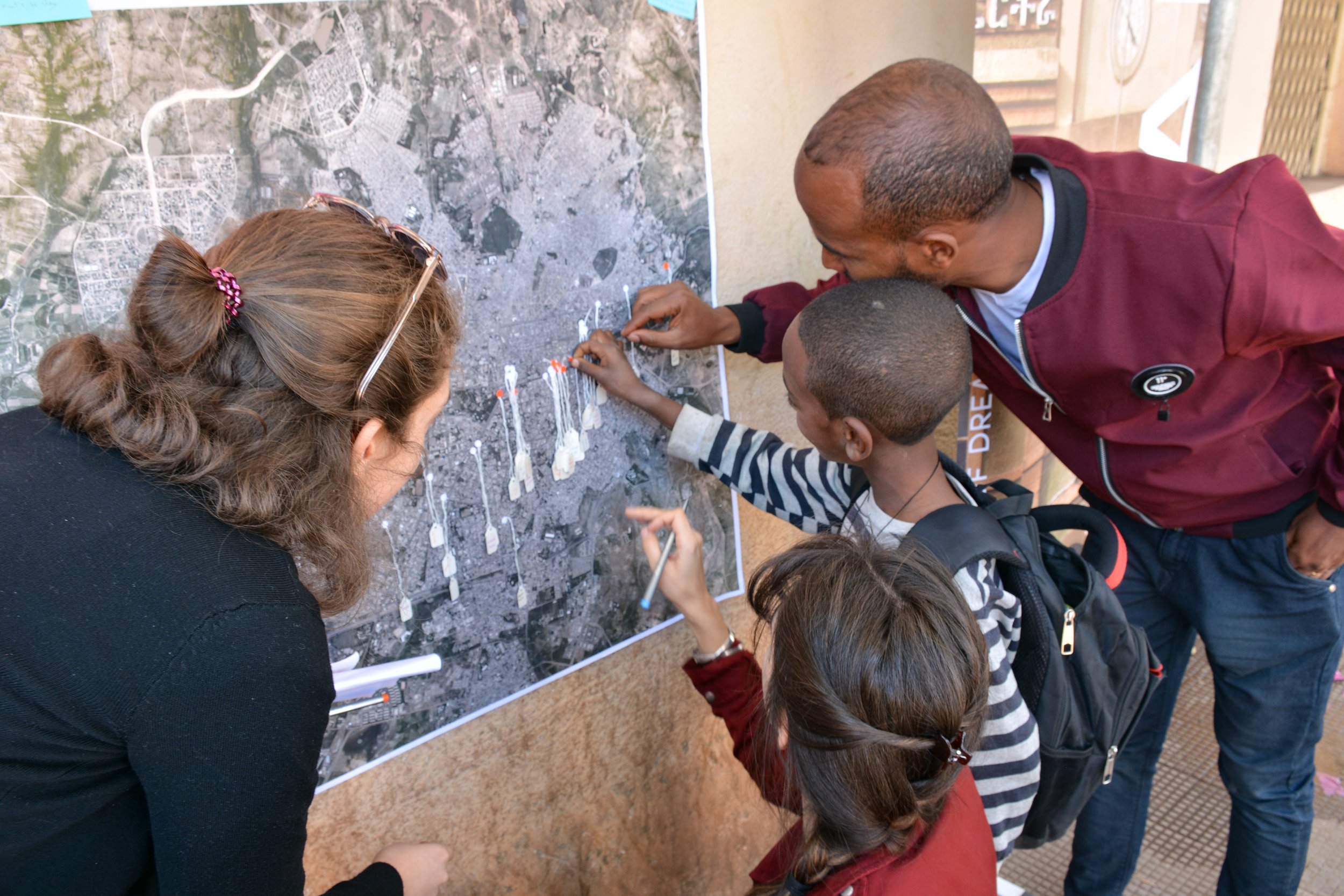INVISIBLE CITIZENS
Invisible Citizens is an international collaboration between designers and researchers focussed on inclusive urban design solutions that address the needs of different genders, age groups, ethnicities and sexual identities.
Happold Foundation “City Conversation” Talks
An international audience gathered with a panel with representatives from the UK, Europe and the USA to examine if gender is an overlooked factor in the way we plan, design and run our cities. The Conversation sets the gender question as part of a wider discussion about exclusion and diversity. The discussion looks at the growing body of research that suggests we design our cities with a huge gender bias which can disadvantage the wellbeing of a large proportion of our society, treating them as ‘invisible citizens’.
The panel was chaired by Oyin Talabi from the Buro Happold Foundation and included: Hannah Corlett, Urban Designer at HNNA, UCL (London. UK); Sarah Williams Urban Planner, MIT (USA); Öykü Ülgüner, City Planner and Sustainability Manager at Buro Happold (Germany); Rumana Kabir, Development Consultant for GNDR (Reading, UK); Wan Sophonpanich, Global CCCM Cluster Coordinator at IOM – UN Migration (Geneva, Switzerland) and Pedro Silva Costa, Architect at UNStudio (Amsterdam, The Netherlands).
Hannah discusses three topics which all relate to planning and design solutions with regard to gender:
Representation within design, including issues related to who designs the city and how this influences for whom and the importance of public engagement.
The different ways individuals use cities and how these should be addressed whilst also understanding the issues of segregated space.
Taking back the night – designing for fear reduction (predominantly related to transportation, lighting and the media message).
Public Engagement Asmara, Eritrea Photography @ Saif Osmani
The Public Engagement exercise carried out by the Asmara Heritage Project (AHP) and staff and students of the MA Architecture and Historic Urban Environments (MAHUE), UCL, builds on two decades of work aimed at researching, safeguarding and promoting Asmara’s outstanding urban heritage and the rights and interests of its people.


